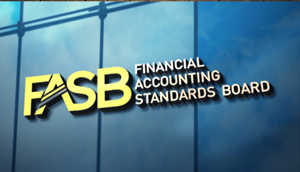Financial Accounting Standards Board is a private, non-profit organization that sets both broad and specific principles.
The FASB’s standards are the source of authoritative non-governmental US generally accepted accounting principles (US GAAP)
How was the FASB established?
The Financial Accounting Standards Board (FASB) was created by the Securities Exchange Act of 1934 under instruction from Congress to establish accounting principles that would provide transparency to investors regarding business transactions. The FASB was initially created through a joint effort between 3 private organizations: American Institute of Certified Public Accountants (AICPA), American Accounting Association (AAA), and National Association of Accountants (NA).

Why is FASB important?
The stated mission of the Financial Accounting Standards Board is to establish and improve standards of financial accounting and reporting for the guidance and education of the public, including issuers, auditors, and users of financial information.
The accounting standards developed by FASB directly impact how businesses report items such as inventory costs, debt, assets, revenue, stockholder’s equity, and taxation. FASB also allows businesses to choose how they depreciate assets on their financial statements, and they must disclose which method is used and use it consistently for the life of the assets.
FASB requires companies in the same industry to report revenue in the same manner. This helps the public compare each company’s financial statements with the knowledge that the same reporting standards are being used.
Functions of the Financial Accounting Standards Board
The FASB performs a wide range of functions, ranging from creating new principles to educating the general public
- Establish reporting standards
The FASB’s most important function is to ensure that accountants and other intermediaries involved in handling financial information create detailed reports, which are then shared with stakeholders. Following a consistent set of standards enables a more efficient market and economy. - Improve accounting standards
The FASB’s mission, advertised strongly on their website, is to continuously update and enable accountants to work with better accounting principles. In the 21st century, the FASB is looking into how technology interacts with the field of accounting so it can utilize some of the benefits it may bring to the world of accounting. - Ensure information is transparent and useful for investors
In capital markets, it is necessary for investors to receive information surrounding a company’s profits and losses. A recent change made by the FASB allows companies to restrict the information that is conveyed to the investors, which may not be as relevant. The rule applies more to biotech and drug companies who conduct trials and testing phases, which may not be as relevant to investors besides the impact of the finished product itself. - Create new accounting principles
The FASB is responsible for creating new principles that improve the system. An example of a newly created accounting principle is the disclosure principle, which gives a company the right to publicize its details and structure of costs incurred in the year. - Enable the general public to be educated on accounting standards
Professionals undergo years of education in order to truly understand the already existing principles and accounting standards. However, FASB makes sure to continually educate and update the knowledge and expertise of its accountants and other professionals to uphold its mission and purpose while also enabling transparency.
The FASB’s main goal is to design new and effective reporting guidelines for all companies that sell goods or services in the United States. Their secondary role includes oversight regarding changes to GAAP (Generally Accepted Accounting Principles) as Congress may request, so they can implement more effective legislation as a result.
The FASB, at the moment, is more focused on making sure companies report their financial facts in a way that is consistent from year to year. The IASB has a broader focus on increasing the harmonization of international accounting standards across countries and establishing GAAP globally.

